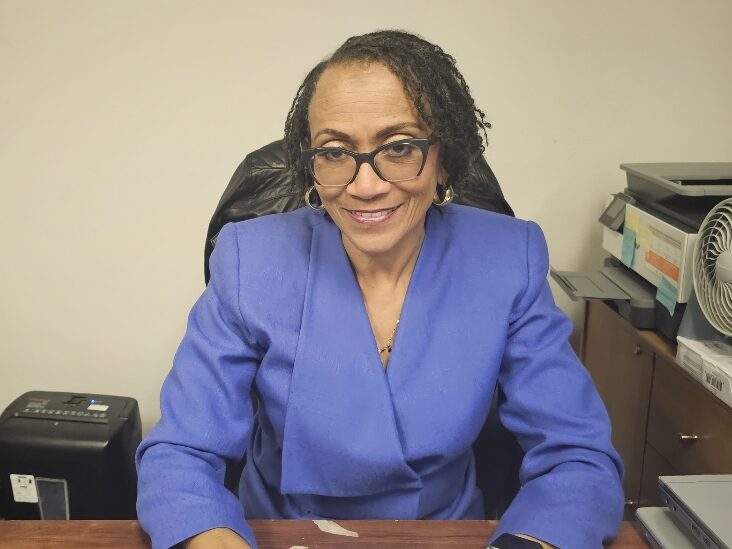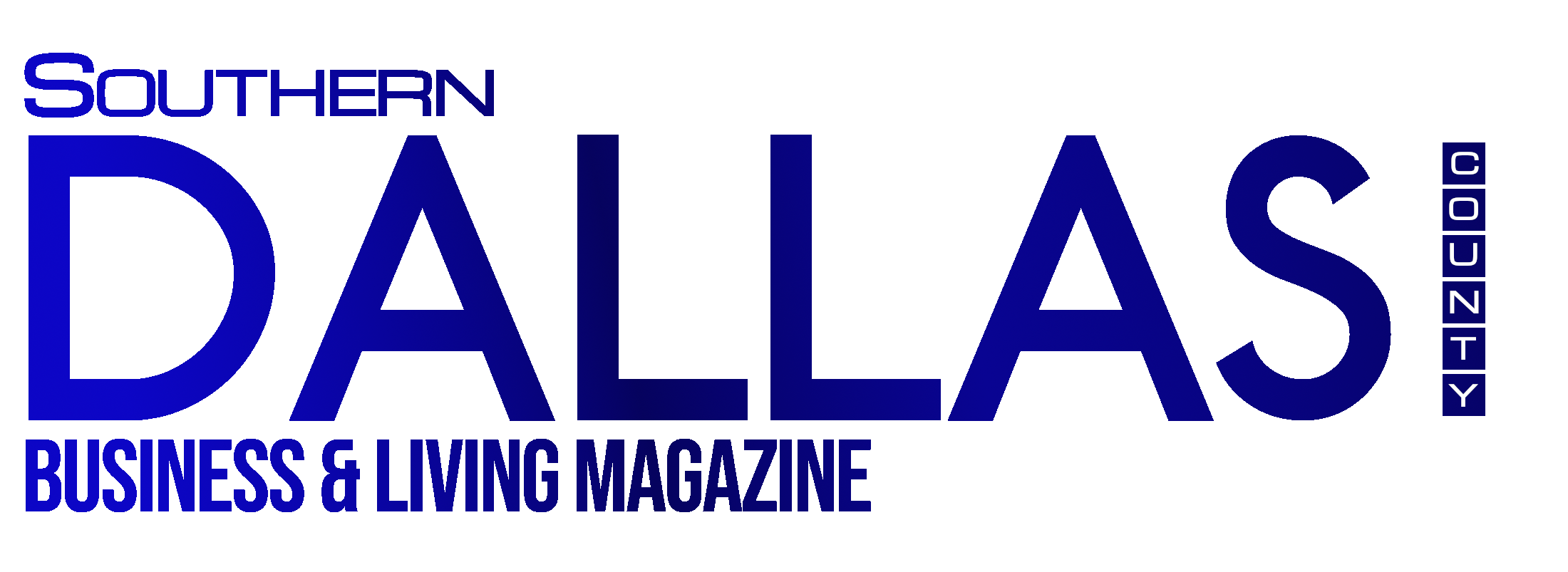 SDM– Lakisha, drug addiction is a subject that many would rather not talk about as it brings about so much pain and suffering. It has destroyed families and entire communities. Before we get to how you got into this business, tell us a little about yourself. You’re a native of Dallas, correct?
SDM– Lakisha, drug addiction is a subject that many would rather not talk about as it brings about so much pain and suffering. It has destroyed families and entire communities. Before we get to how you got into this business, tell us a little about yourself. You’re a native of Dallas, correct?
Lakisha – I am a wife and a mother of four. I was born and raised in West Dallas, Texas and I come from a lineage of entrepreneurs. My grandfather and father were the proud owners of Goodman Automotives. My upbringing, while humble, were rich in lessons about determination and the importance of chasing dreams. I graduated from Health Professions Magnet. Breaking new ground in my family, I was the first to graduate from college, with a degree in Respiratory Care. This achievement wasn’t just a personal milestone; it was a beacon of possibility for my entire family. My educational pursuit ignited a similar passion in my children, three of whom followed in my footsteps, not only graduating from college, but also advancing to graduate school.
My dream was always to be a nurse. So, I went back to school to get my nursing degree. Nursing, for me was more than a profession; it was a calling to help and heal. My commitment to service led me to establish an outpatient drug rehabilitation center. This center is not just a medical facility; it’s a beacon of hope, offering a new start to those struggling with addiction.
SDM– So let’s get to it! Why did you choose to go into this business? Did you know anyone personally that was addicted?
LaKisha– I don’t have an addiction, but growing up in West Dallas I witnessed the broader impacts of substance abuse in my community. Seeing the challenges and struggles faced by others sparked a deep sense of empathy and a desire to contribute to a solution. My decision to establish an outpatient drug rehab center stemmed from a strong desire to make a tangible, positive difference in people’s lives. Recognizing the devastation caused by addiction, Ichose a path where I could offer hope and support to those in need.
SDM– When did the business start? Also where are you located and why that location?
LaKisha– Life’s Second Chance Treatment Center was established December 23, 2013, at
2615 South Lancaster Road in Dallas,Texas.
I picked this location because the area was struggling with homelessness and addictions.
SDM– Let’s talk about the people you are helping. What types of drug addictions do you treat? Tell us how the process works.
LaKisha– Life’s Second Chance Treatment Center Specializes in treating people who suffer from an opioid addiction. Opioids include heroin, pain pills and one of the main ones you may hear about,Fentanyl. Each patient who decides to come in for treatment is screened by one of our licensed intake counselors. This process is to gather information to ensure that the person meets the criteria and is appropriate for outpatient treatment. If the patient is deemed to be inappropriate for outpatient, the intake counselor provides them with a list of referrals for the right treatment option. If the person qualifies for outpatient treatment, they complete several assessments and have lab work done,which are reviewed by the Medical Director. At that point, the treatment begins. Treatment consists of counseling with an licensed chemical dependency counselor and medication assistance. The medication is provided to the patient daily to help with the withdrawal symptoms.
SDM– How is your success rate? Do you find that the people you help stay off drugs?
LaKisha– Success rates can vary significantly depending on the type of substance being abused. Some substances, like opioid’s, have higher relapse rates due to their highly addictive nature. The effectiveness of treatment can depend on the methods used. For instance, evidence-based approaches like medication-assisted treatment (MAT), and motivational interviewing, which we offer at Life’s Second Chance have been shown to be effective for many individuals. The duration and severity of addiction, the presence of co-occurring mental health disorders, personal motivation, and the support system available can all influence success rates. Success in addiction recovery is not just about abstaining from substance use; it also includes improvements in personal health, relationships, and overall quality of life.
SDM– What do you feel makes LSC Treatment Center different from other centers? Why should someone who is facing drug addiction choose LSC Treatment Center?
LaKisha– We are a small familyoriented business that doesn’t treat our atients like addicts but like human beings. We strive to help guide them down the pathway of recovery. We celebrate the success in recovery and we help them when they are feeling the lows, by not aassing judgement. We focus on creating personalized treatment plans for each client, recognizing that addiction recovery is not a onesize-fits-all process. Respecting the privacy and dignity of each client, LSC ensures a confidential and respectful environment, which is essential for clients to feel safe and secure.
SDM– Do you accept insurance?
LaKisha– We do accept some insurances, Medicaid and Medicare.
SDM– I know seeing people suffer from drug addiction is hard, but also rewarding to see them in recovery. What keeps youmotivated to do this type of work?
LaKisha– Working in the field of drug addiction recovery can be both challenging and rewarding.
What often keeps us motivated in this type of work is seeing the profound change in individuals as they recover from addiction. This transformation not only affects the individuals themselves, but also positively impacts the staff, their families and communities. Knowing that our efforts contribute to someone’s betterment and potentially saving lives provides a strong sense of purpose and fulfillment. Each success, no matter how small, in helping someone overcome addiction can be incredibly motivating. The challenges faced and overcome in this process fosters personal and professional growth. Recognizing the broader impact of our work on the community is a significant motivator. Contributing to a healthier, safer community is a powerful incentive. Being an advocate for change and raising awareness about addiction and recovery is motivating.
SDM– Is there any success story that stands out that you could share with us?

LaKisha– Of course! I will call the patient Jane Doe for privacy purposes. Jane Doe, a 28-year-old graphic designer, found herself struggling with opioid addiction after being prescribed pain medication for a car accident injury. Initially, the medication was a relief, but over time, she started depending on it to get through her day, leading to addiction. Her life began to unravel. She lost interest in her work, her relationships suffered, and she felt trapped in a cycle she couldn’t escape. When she lost her job due to poor performance, she realized she needed help. Reluctantly, she reached out to Life’s Second Chance Treatment Center, which turned out to be her turning point.
At the center, she found a supportive community of rofessionals and peers. She started the medicated assisted treatment program (MAT), which was challenging, but crucial for her recovery journey. During treatment, she engaged in counseling and group sessions. Counseling helped her understand the root causes of her addiction and develop healthier coping mechanisms. A significant aspect of her recovery was the support group meetings. Here, she found others who shared similar struggles. Their stories and encouragement gave her strength and hope. She learned that recovery wasn’t just about stopping the use of drugs, but about rebuilding her life.
After completing her treatment program, she regularly attended support group meetings. She found a new job in graphic design, where she could use her skills and creativity again. She also started volunteering at the treatment center, sharing her story to inspire others. Two years into her recovery, her life has transformed. She rebuilt relationships with her family and friends, and her career is thriving. Most importantly, she has learned to find joy in the small things and faces challenges with resilience and a newfound strength. Jane Doe’s story is a testament to the power of seeking help and the possibility of recovery, even from the depths of opioid addiction. Her journey reflects the challenges and triumphs many face in overcoming addiction, and her success serves as an inspiration to others.

SDM– You are also a serial entrepreneur! What are the other businesses you are involved in?
LaKisha– Yes, you can say that. Life’s Second Chance Treatment Center has 2 locations. I also have a non-profit organization called Addicted 2 Life and Recovery which provides wrap around services for people who are currently in treatment or in recovery that may need additional support. I have a home healthcare agency, Juanita’s Touch Home Healthcare Inc., and lastly a non medical transportation service, Superb Wheelz in Motion, which provides transportation services to clients.
SDM– LaKisha, you are doing incredible work at LSC Treatment Center and we encourage anyone who is facing the devasting affects of drug addiction to contact your center. Is there anything else you would like to share with our readers regarding LSC Treatment Center and any words of advice or wisdom on being a business owner?

LaKisha– LSC Treatment Center was founded on hope and a dream to help people who are struggling with the devastating affects of addiction to regain their sobriety and dignity. Over the last ten years, we have helped treat hundreds of people. My advice to any aspiring business owner is to never give up, no matter how difficult and challenging things may seem. Never give up on your dream.
SDM– How can someone reach out to LSC Treatment Center for help?
LaKisha– Anyone interested in treatment can go to our website www.lsctreatmentcenter.com and schedule an appointment. Or they can walk into a location
2615 South Lancaster Rd
Dallas, Tx 75216
214-376-7388
1451 Empire Central Dr Ste 900 Dallas, Tx 75247.
469-372-1277


